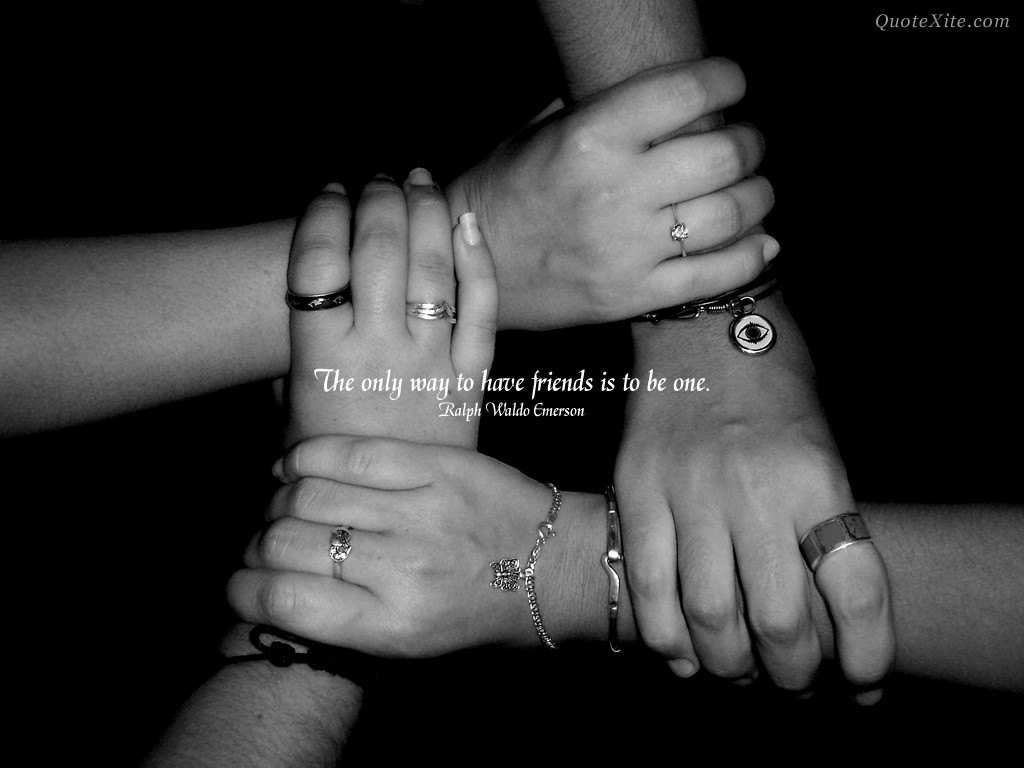Word-Of-the-Week #1024: Relax
March 21, 2024 by Susan Clarke · Comments Off on Word-Of-the-Week #1024: Relax
Relax – what you need to do to reduce stress.
Does having your “plate too full” make you feel stressed? How much time do you take each week to just relax? When you go on vacation how long does it take you to fully unwind? You did take a vacation from work last year, right?
This week’s WOW is from Time Magazine featured an article titled, “Six Ways to Handle Stress.” First, “There’s more than one way to relieve stress.”
- Breathe Deeply. Regular, slow breathing – a common characteristic of meditation and prayer – alerts your brain that you are in a safe place far away from predators. It also relaxes your heart, decreases blood pressure, and removes waste from the bloodstream.
- Take a Vacation. A change of scenery clears the head, recharges the batteries and, according to a recent study sponsored by Air New Zaland, improves reaction time 82% – provided that you ignore your e-mail and allow a couple of weeks to disengage and unwind.
- Make Friends. Social isolation increases the physiological damage caused by stress. A 2006 survey found that Americans have only two close friends with whom they can confide their deepest concerns – down from three friends 20 years ago.
- Exercise Regularly. It protects the heart, which is often the first to feel the effects of stress. Studies show exercise also helps maintain the brain’s ability to change focus quickly from one situation to another.
- Eat Plenty of Fruits & Vegetables. The antioxidants and other ingredients they contain counter-balance the inflammatory proteins the body produces under stress.
- Don’t Stay Up Late. Irregular sleep increases the effects of stress on your body, setting you up for metabolic imbalances that increase your risk of heart disease.
- Do What You Love. Having a sense of mission about your job makes it easier to deal with inevitable setbacks. (You will still need to take those regular breaks from work.) And if you can’t find meaning in your job, look for it in a hobby or through participation in religious or community organizations.
The good news is, I am in Hawaii to Relax and experience some Nature. And as Sandra, my long-time dear friend said after reading my WOW on Nature, “I was planning to run to the gym but, maybe I will hike outside today!”
This week’s focus is on making time to relax. Are you able to do that or do you feel guilty? Do you take time to breathe deeply? Do you have friends with whom you can confide in? Are you doing what you LOVE? Are you exercising regularly? If not, “Go take a hike!”
I LOVE feedback! Join my Facebook community on my FUN-damentals Fan Page.
Word-Of-the-Week #1023: Adventurous
March 14, 2024 by Susan Clarke · Comments Off on Word-Of-the-Week #1023: Adventurous
Adventurous – willing to undertake new and daring enterprises.
At this stage of your life how willing are you to undertake new and daring enterprises? Does that feel scary or intimidating? Or do you get a feeling of excitement?
I’m on vacation for the next 2 weeks and definitely plan on being adventurous! So, I’m re-running some of my favorite travel WOW’s.
New York times writer Carl Richards aka SKETCH GUY is this week’s contribution. His latest article “Adventurous Quests Sharpen Everyday Skills” states, “I was telling a friend about some projects that really excited me – a new book I’m working on, an article I’m writing and a new hobby, motorcycling in the desert.
He asked, “How do you stay so motivated and so excited about things?”
It caught me off guard. I hadn’t really considered the “why” behind my activities. But I realized that the common thread was the feeling of being in over my head, just a little. In other words, doing things despite the fact that that, as the marketing guru Seth Godin likes to say, “this might not work.”
Now, that may sound counterintuitive. It’s easy to wonder how doing stuff that makes you uncomfortable, and might not even work, is a source of motivation. I’ve been thinking a lot about this paradox. I wondered whether I’m wired differently. But there’s something about a sink-or-swim environment that excites me.
My friend Dallas Hartwig told me about this concept call hormesis, a phenomenon by which something that could impair or even kill you in high doses can make you stronger in low doses.
Of course, I thought. What doesn’t kill you makes you stronger. It’s well documented that the way to grow muscle is to rip the muscle tissue, and then give it time to regrow. It comes back stronger than before. It makes sense that the business equivalent of building muscle is trying new things. When you throw yourself into the deep end of something new, you face a steep learning curve. That forces you to grow, adapt and develop your skill set. It’s almost irrelevant if the project succeeds. The very act of taking on something new helps you become better at your work over all.
You cannot spend your whole life in the deep end. Muscles get tired. Just like physical exercise, you have to calibrate the stress and rest cycle of any sort of entrepreneurial or creative work. The more I thought about it, the more I began to see these experiences for what they really were –adventures. After all, isn’t the definition of adventure to set off into the unknown, endure hardships, come back and then rest?
I know that adventures can feel scary and intimidating. But making a habit of seeking adventure may be the secret to staying motivated about the things you do.
And that confers a key economic benefit to anyone who experiences it. Even if we set aside all the tangible benefits that come from stepping outside our comfort zone, it is obvious that being more excited about your work is a surefire way to improve your performance, and turn your various ventures into adventures.
This week’s focus is on being more adventurous. How motivated are you at this point of your life? How would it feel to step outside your comfort zone? Is there anything you have been putting off that would bring you excitement?
I LOVE feedback! Join my Facebook community on my FUN-damentals Fan Page.
Word-Of-the-Week #1022: Camaraderie
March 7, 2024 by Susan Clarke · Comments Off on Word-Of-the-Week #1022: Camaraderie
Camaraderie – goodwill and lighthearted rapport between or among friends.
How many friends do you have at work? Do you feel a sense of goodwill and rapport with most of the people you work with? If you could change one thing about the people you work with what would it be?
This week seemed like a good time to rerun The Huffington Post article written by Carolyn Gregoire titled, “Why You Should Care about Having Friends at Work.”
She writes, “Chatting over lunch and joking with coworkers may not seem like more than pleasant distractions at the office, but they could have an enormous impact on your work life. With employee engagement declining and more than eight in 10 American workers experiencing job-related stress — female employees being even more more vulnerable to workplace tension than men — friendship could make the difference between happiness at work and burnout. Research has found that strong social connections at the office can boost productivity, and could make employees more passionate about their work and less likely to quit their jobs.
According to Christine M. Riordan, provost and professor of management at the University of Kentucky, camaraderie is a key ingredient to happiness at work for male and female employees. A study led by Riordan, published in the Journal of Business Psychology in the ’90s, found that the mere opportunity for friendship increases employee job satisfaction and organizational effectiveness.
In a recent Harvard Business Review blog “We All Need Friends at Work,” Riordan pointed towards the multitude of evidence suggesting that office friendships can act as an antidote to dissatisfaction and disengagement at work. The type of relationships that go beyond casual chat buddies — what she calls “the good old-fashioned friendships created when we chit-chat, hang out, joke, and have fun with co-workers” — can have deep and far-ranging benefits in the workplace.

She writes, “Camaraderie is more than just having fun… It is also about creating a common sense of purpose and the mentality that we are in it together. Studies have shown that soldiers form strong bonds during missions in part because they believe in the purpose of the mission, rely on each other, and share the good and the bad as a team. In short, camaraderie promotes a group loyalty that results in a shared commitment to and discipline toward the work.
Employees who enjoy this type of camaraderie are more likely to stay at their jobs and feel loyal to the company they work for. Riordan cites a 2012 Gallup report which found that 50 percent of employees with a best friend at work reported that they feel a strong connection with their company, compared to just 10 percent of employees without a best friend at work.
This week is all about camaraderie. Do you feel a strong connection with your company? Do you chit-chat, hang out, joke, and have fun with co-workers? How about your staff? Is there a high rate or low rate of turnover?
I LOVE feedback! Join my Facebook community on my FUN-damentals Fan Page.
Word-Of-the-Week #1021: Connection
February 29, 2024 by Susan Clarke · Comments Off on Word-Of-the-Week #1021: Connection
Connection – the act of creating a relationship.
When was the last time you had a meaningful conversation with someone in person? How much time each day do you spend on your smartphone? Would you like to sleep better, feel more productive at work and have more meaningful communications?
This week Kashmir Hill’s “A Practical Guide to Quitting Your Smartphone. Readers who have taken the plunge said it had improved their lives, marriages and mental health, and offered advice to those going without their smartphones for “Flip Phone February” felt like a great follow up to last week’s WOW.
“Last May, Fabuwood, a kitchen cabinet manufacturer in Newark, instituted a new company policy: No phones allowed during meetings.
To enforce it, the company installed “device shelves” outside each of its six glass-walled conference rooms. On a recent Wednesday morning, there were animated meetings in three of the conference rooms, and the shelves outside were full of smartphones, tablets and ’90s-style flip phones. The 1,200-person company pays the cost of a flip phone for employees who give up their smartphone, and 80 people have acted on the offer.
Surprisingly, employees say they like it. Rena Stoff, a project manager, said that while at first she hated the idea of being deprived of her smartphone, she found that it had made meetings — that she once found boring and unnecessary — engaging and productive.
“Having the phone away from me has almost made my brain more open to information,” she said.
Fabuwood’s founder and chief executive, Joel Epstein, was motivated by his personal belief that smartphones are “destroying our personal and professional lives.”
He started using a flip phone seven years ago after developing carpal tunnel symptoms in his hands from near-constant use of his BlackBerry. He said he slept better, felt more productive at work and had more meaningful communications. Mr. Epstein, a Hasidic Jew, said his choice of device was not unusual in the ultra-Orthodox Jewish community, which encourages the use of “kosher phones” with limited internet access.
Last year, Mr. Epstein queried Fabuwood managers on how often their workers were on their phones; they estimated two hours per day on average. He asked a warehouse safety officer, whose job typically entails monitoring for unsafe conditions, to secretly document each time he saw an employee using a phone in the office. Mr. Epstein said many of the company’s poorest performers were on the list.
Mr. Epstein decided to fight back against the devices competing for his employees’ time and attention with an “InFocus” initiative, asking workers to keep personal devices out of sight while on the job. No one is punished for violating the rule, but managers will email reminders when they notice any backsliding.
There was some grumbling when the initiative was proposed, with some predicting that people would quit. But that didn’t happen, Mr. Epstein said. Instead, poor performers improved. “Within six months, productivity was up 20 percent,” he said, citing internal corporate metrics.
What surprised him most, he said, was the steady stream of messages from employees saying the program was life-changing.
- Team Flip Phone
I heard about Fabuwood’s initiative after I published an article about fighting my own iPhone addiction by switching to a flip phone for a month. Abraham Brull, a manager of software development at Fabuwood, emailed me saying that he had struggled with his smartphone dependence in the past and that it had helped him to join a company that encouraged healthier technology use.
His was among hundreds of emails I received. Many were from flip phone enthusiasts who disagreed with my suggestion that using a “dumb phone” indefinitely wasn’t an option. Long-term flip phone users of all ages and professions said that their lives were better without smartphones, and that their marriages, relationships with their children and mental health had flourished as a result.
Alba Souto, 29, from Spain, said not having a smartphone had made her relationship with her husband, who also switched to an old Nokia, “more mysterious and exciting.”
“Not having access to each other at all times via messaging apps has improved the quality of the time we spend together,” she wrote in an email. “We have more to talk about.”
“I love it,” wrote Christopher Casino, 29, of Brooklyn, who switched in October to a Cat flip phone that gives him access to Uber, Maps and Spotify, but not to social media or news apps. “I do my hobbies more consistently. I read on the subway. I talk to my husband more. I don’t feel the crushing pressure of knowing everything instantly and saying the perfect thing online.”
- Advice for ‘Flip Phone February’
Sarah Thibault, 43, an artist in Los Angeles, said she planned to participate in “Flip Phone February,” an idea that I proposed to follow Dry January. She was inspired to give up her smartphone by a viral video of a crowd of phones ringing in the new year in Paris.
She created a Flip Phone February community on Reddit to share messages and tips with other participants. I joined and posted a link to a contest that Siggi’s Yogurt recently announced offering $10,000, flip phones, smartphone lockboxes and, of course, free yogurt to 10 people who commit to a monthlong digital detox. The company’s spokeswoman told me that 322,935 people had entered the contest.
- The Downsides
Those who make the switch be warned: There were quite a few complaints in my inbox about our increasingly smartphone-centric world.
“The issue that is most disturbing to me, and one that I wish that journalists and regulators would turn their attention to, is the ever-increasing need to have a smartphone to navigate daily life,” wrote a 47-year-old father with no mobile phone at all. “Ten years ago, lacking a phone meant some minor social challenges; nowadays, it can be hard to go through ordinary life.”
He has been frustrated by the now common use of QR codes to get into sporting events and to view restaurant menus. He and many others said payment machines at parking lots often directed people to pay via a smartphone.
“I just got a parking ticket this week because I couldn’t go online and pay via their QR code or app,” wrote a 31-year-old Missouri mother with a flip phone. But she said it was worth it.
“Even in these moments I wouldn’t go back to the smartphone. I am done being enslaved to a piece of tech that has robbed me and my kids of my attention,” she wrote. “Your child-raising years are short. Your kids NEED YOU. Want to be a good mom? Want to raise healthy kids? The best thing you can do is throw your smartphone into the toilet, even for a short while.”
(But don’t actually throw your smartphone in the toilet. You might need to connect it to Wi-Fi at some point to get a two-factor authentication code.)
Some readers, such as one corporate executive and mother of three, said they “could never go flip.”
“The invention of the smartphone has enabled work-life integration in ways I couldn’t imagine!” she wrote.
She said her hacks for making it less addictive included turning off notifications and deleting social media apps. She and others thanked me for pointing to a study that found switching a smartphone from color to gray scale mode helped people significantly reduce their screen time. “Pumped about the grayscale tip,” she wrote, “turning that on today!”
For those who are wondering, I’ve now been using my flip phone as my main phone for two months. But I did get a second line for my smartphone to use when access to the internet is a necessity. I’m not sure, for example, that I would have been able to find Fabuwood’s headquarters — on unfamiliar roads in industrial Newark — without it.
This week’s focus is on connection. How would it feel to disconnect to better connect with those around you? How many people do you know that are “addicted to their phones?” Do you realize how important relationships are in adding to your overall happiness?
I LOVE feedback! Join my Facebook community on my FUN-damentals Fan Page.
Word-Of-the-Week #1020: Frivolous
February 22, 2024 by Susan Clarke · Comments Off on Word-Of-the-Week #1020: Frivolous
Frivolous – not serious; playful.
When was the last time you were playful? Or the last time you looked up to the stars with wonder?
Once again, Neil Senturia has written a profound article Why having fun is good for the soul. Particularly for the entrepreneur — when the world is in a serious state of flux — there is a deep need to embrace those moments that amaze and delight.
“How are you feeling?
Series B financing going well, the board loves you, no homeless people camped in your parking lot, excited about the election choices, revenue ramping up, marriage is solid, climate change is a non-issue, just got back from Davos and life is fantastic?
For the 99.7 percent of us for which that is not true, we need a reset, we need some fun, some laughter, some delight. We need to stop, wonder at the universe, and remember that money doesn’t buy happiness. (Actually, studies show that it really helps, but your parents didn’t tell you that for fear that it would stifle your ambition.)
Meet Catherine Price, author of “The Power of Fun.” She teaches delight. “Making a point to notice and share things we find delightful can improve our moods, outlooks, relationships and our physical health.” She wants us to be “frivolous.” She contends it will help us live longer.
I like the use of the word delight. I believe in laughter. At this time, I think that particularly for the entrepreneur when the world is in a serious state of flux, there is a deep need to embrace those moments that amaze and delight.
As a first step Price argues for disconnecting from social media, but that is not enough. The next step is to allow yourself to be dazzled, to be amazed. When that happens, it makes you smaller, it centers you and maybe it even lets you laugh at yourself.
My normal response to fascinating stuff is to say “wow.” I have a bit of the child in me, and I want to suggest that a combination of gratitude and delight can actually be effective in running your company or just surviving in the company in which you toil.
I know there is a touch of corny here — you know the “look up at the stars and wonder” moments — but Price makes a great argument for what she calls “savoring, the practice of deliberately appreciating positive life experiences.”
Now there are several kinds of delight. If you have been tossed on the hot coals by your venture capitalist who said “no mas,” you can take a bit of comfort in some data, namely 38 percent of VCs disappeared in 2023.
I don’t think Price is advocating schadenfreude, but rather she wants us to elevate our own spirits, raise our ratio of joy to misery and seek wonder. Along the way, seek “playfulness, connection and flow.”
I like the idea of playful. That does not mean more game apps, but instead trying something goofy. My granddaughter made me a paper crown, and I wore it watching a football game. I think it helped the Chiefs win that day.
Price likes the word “marvel.” I know that is easy to do that when you read about the latest and greatest health care cancer cure genomic AI, but I am going to try to embrace baseline marvels — like electricity.
As many of you know, I am a passionate follower of magicians, magic tricks and conjuring. I know the same card cannot be in two places at the same time, but there it is. How can that be?
Barbara and I went to the Mat Franco magic show in Las Vegas. It was fabulous, and right before the conclusion of one of the tricks, I turned around and looked at the audience. Their mouths were open. It was wonder. The reveal and then came massive applause. That was the moment when they gave it up. They were transported.
I know that the startup racket can be brutal, but a few moments outside yourself might yield new insights. At worst, it should make you smile.
Finally, please indulge me while I beat my favorite drum — why people do stupid things.
Case in point: Joe Lewis, 86-year-old British billionaire, just couldn’t help himself. He was found guilty of insider trading. “I knew that what I was doing was violating a legal duty, that what I was doing was wrong.” His fine was $50 million and possible time in the slammer.
His net worth at the time was $6.1 billion.
So you risked prison and your reputation to make even more money and “to give some tips to your friends, employees and romantic interests.”
Joe, when is enough, enough?”
Rule No. 796: “For a Few Dollars More” – Sergio Leone
This week’s focus is to be frivolous. What do you do to elevate your spirits? When was the last time you felt amazed, dazzled or delighted? How would it feel to “savor” and deliberately appreciate your positive life experiences?
I LOVE feedback! Join my Facebook community on my FUN-damentals Fan Page.





